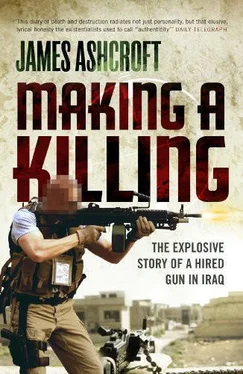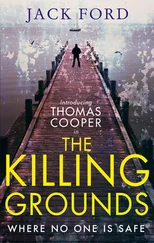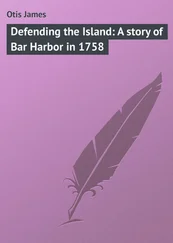The noise was overpowering. The air was thick with dust and the not unpleasant smell of cordite. With the amount of bullet strikes and tracer going in, it was clear to the Kiowa pilots what we were firing at and one of them came back up the river to point-blank range and nailed the ruins with a 2.75-inch rocket that exploded with an almighty boom. Then there was silence. It was the sort of silence you are aware of when a car alarm wakes you at night, wails for ten minutes, then goes quiet.
We waited. The dust coated our skin as it settled. I sucked in deep breaths and realised that I was dying of thirst again. We waited some more.
I caught sight of Gus signalling up ahead and saw squad leaders tilting their heads as they listened to orders over the radio. Leapfrogging each other again, squad by squad, we made our way cautiously towards the ruins. They had been completely blown to pieces. We found one dead body and three weapons and made them safe. If there were two more dead insurgents, their bodies were either deep beneath the rubble or they had evaporated in the air across the river and into the trees beyond.
The dead terrorist was wearing a grubby white tunic over baggy trousers and a chest rig with ammo pouches for his AK under a European-style jacket. Stuck in his belt there was a curved knife that looked like an antique and on his feet there was a pair of worn-out flip-flops. It always came as a shock when you saw reasonably armed rebels without proper footwear. He couldn’t have run if he’d wanted to without them falling off. After a good gun, you need a good pair of boots. The dead guy was 25, perhaps. He had been shot in the face and his flattened head looked like an empty rubber mask. His shemagh , skull and brains were spread out in the grass behind him. Two men were detailed off to get a body bag and bag him.
The Humvees had pulled forward. Half the guns were pointed at the two squalid shacks, windowless and poorly constructed; one had an ornate door, stolen from the villas, this conventional piece of carpentry making it all the more depressing. Next to the shacks I saw a sink, an air conditioner, a fridge and a TV stacked up in a pile, obviously looted from a villa as well, despite the fact that there was no electricity. They got their water from the two-inch pipes that irrigated the plantation and they shitted among the trees. The smell was overpowering, chickens, goat and human waste in a toxic mix that hung over the area and almost made me gag.
The Humvees lined up on the road next to the shacks as I patrolled with Gus and two squads on foot towards the shacks, eyes peeled, weapons in the shoulder. Children swarmed around us, six, seven, eight, it was hard to be sure, they were ragged urchins who didn’t ask for money. There was a vegetable patch, a couple of goats and a few chickens that were stamping about screeching, unsettled by the fuss.
A man appeared wearing a filthy tunic and sandals made out of car tyres. He had a bushy moustache and thick stubble on his sunken cheeks. His big Adam’s apple was rocking up and down and more noticeable were his wild red eyes. Like virtually every Iraqi I had met he looked worn and lined. He looked terrified and it became apparent to me that it wasn’t us he was frightened of so much as the man who stepped out through the ornate door behind him smoking a cigarette. He was a young city Arab in a suit and white shirt with his belly hanging over his belt. He was wearing a shemagh , but it was clean and he had a gleaming black moustache and a freshly shaven chin. It was like royalty arriving at a party. We were all quiet for a moment. Gus Gazzard’s interpreter translated.
The city Arab said he was a farmer. They were one family. He didn’t know anything about the fedayeen. ‘They are very bad men. We are happy you are here and you are all alive.’ Blah. Blah. Blah.
‘What the hell’s this guy doing here?’ I said to Gus. ‘Look at these people.’
The children were still swarming around us. They were universally filthy and barefoot, dressed in rags. Some of the specialists had sweets which they gave out and these children snatched at them gratefully. This was poverty like I’d seen in Africa.
‘Sarn’t Navarro, search those rooms,’ Gus pointed at the shacks. They moved inside cautiously, no headbanger stuff, and almost immediately Sergeant Navarro poked his head back out the door.
‘Something here, sir,’ he called.
Potter and another guy kept their rifles on the two men and I followed Gus into the shack. There was a hole in the floor covered by palm fronds. We pulled them to one side. It was a bloody great big hole the size of a cellar and stored there were about two dozen sacks. We called the interpreter in with the men and asked them what was in the sacks.
The Adam’s apple on the skinny farmer’s throat was throbbing even faster and the colour drained from his face. I could see him sweating. The other guy started shouting at the interpreter, who in turn translated that they had no idea what was in the sacks or how they got there. The farmer fell to his knees and started babbling.
‘He say please. He have the children. Don’t take away. He never seen this before. He swear to the God,’ the interpreter relayed to us.
It was obvious that the skinny wretch was the dupe and the city Arab was hiding stuff in the camp, something the farmer would have had to accept or the terrorists would do something nasty to his kids. Dead bodies were turning up all over Baghdad every day, killed by the insurgents for co-operating with the Americans, killed by bandits for their money, killed for not co-operating with whoever held the guns. The Americans found women with their throats cut, and men shot in the head, executed on the side of the road. You couldn’t count the dead Iraqis. There were just too many.
Sergeant Navarro was about to climb down into the hole to throw up the sacks, but I stopped him. I called to the guys in the squad to bring a couple of children into the shack. If there were any nasty surprises, the farmer would stop us. He didn’t have the intense look of zeal that a suicide bomber would have, looking forward to dining with the Prophet in heaven that evening. He looked scared shitless. It was safe to climb down in the hole and that’s what Navarro did.
The squad formed a line and passed the sacks, piling them in the road. Half of them contained soap flakes, the other half fertiliser: accelerants for improvised explosive devices. Insurgents normally used unexploded artillery shells and mines, which they adapted for bombs, but like any guerrilla army without a regular logistics chain, they also built their bombs from home-made ingredients.
There was absolutely no reason for the dirt farmer and his well-dressed friend to have 1,200 kilos of soap flakes and fertiliser. You don’t need fertiliser for the palms, and as for the soap flakes, I would have been surprised if the man and his kids had ever seen a bath in their lives.
Once we got the sacks out, Sergeant Navarro found a couple of hundred metres of electric cable and a dozen light switches. There was no electricity here in the plantation shacks. Electricity was science fiction.
‘ Vamos a ver ,’ he said. Let’s see. The sergeant was grinning for the first time as he tossed up a dozen maps of Baghdad.
They were highly detailed maps and marked on them were the Coalition bases and the essentials of the Iraqi infrastructure, electrical power plants, our water filtration facilities, the oil refinery over the river, the deserted Iraqi police stations. We didn’t find any detonators or the initial charges of plastic explosives, but they are the kind of thing that a bomber can bring in and attach to the main body of the IED at the last minute.
While the Americans plasticuffed the two men, I took a stroll around the smallholding. I had a fair amount of experience looking for arms caches, and was keeping my eye out for any obvious markers. Five minutes later I gave up. Why would they have bothered to cache all the sacks in the hut and then build another hideaway outside? I made my way back to join Gus.
Читать дальше












